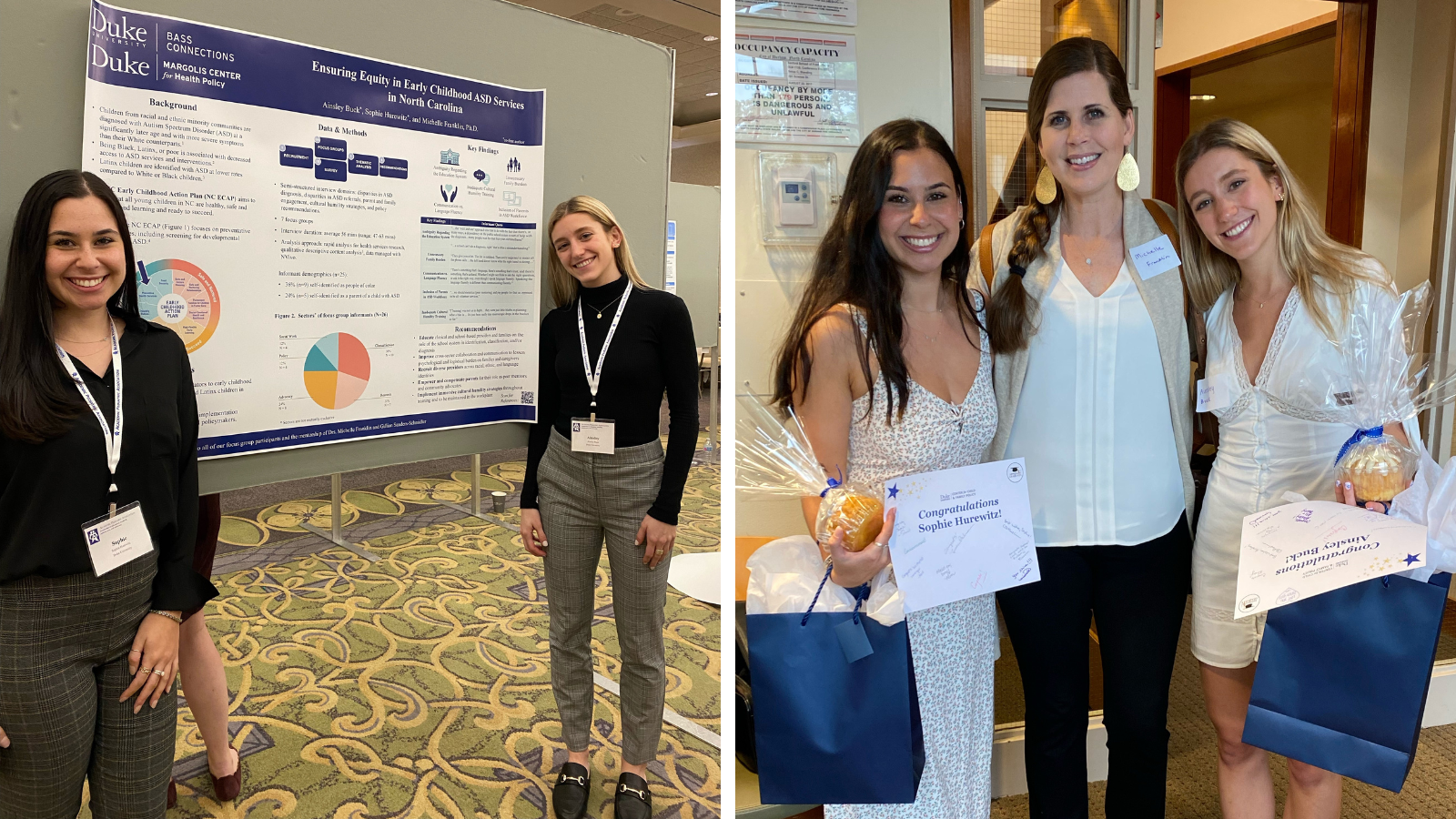Ainsley Buck

Across all of my involvements with Bass Connections, my largest takeaway has remained the same: it takes a village. This is true of both the research process, in which some of my strongest friendships and mentorship experiences have been built, and of the real-world applications of this work.
Degree
Neuroscience T'22
Project Team
Current Position
Donald J. Cohen Fellow in Developmental Social Neuroscience, Marcus Autism Center; incoming Ph.D. Student in Clinical Psychology, University of PennsylvaniaAs a senior in high school, I sat among prospective applicants at a Duke info session in Shelton, CT. I already thought that Duke was my top choice, but when a representative began discussing the Bass Connections program, I was sure. The interdisciplinary nature of the program rang true to my passions.
Two years later, as a sophomore undergraduate, I joined the North Carolina Early Childhood Action Plan (NC ECAP) team, where I remained a student researcher throughout my time at Duke. In partnership with North Carolina’s Department of Public Health, our team, composed of undergraduates, graduate students, post-docs and professors, aimed to better the health and wellbeing of children ages zero to five throughout the state.
Each year, the team selected a different goal of the NC ECAP: (1) social-emotional health; (2) food insecurity; and (3) housing insecurity. Through community-partnered qualitative research, we gleaned the important insights of experts in each of these areas, including early childhood educators, pediatricians, policymakers, and charitable organization leaders.

With a deepened understanding of the value of including lived experiences in research, another undergraduate team member, Sophie Hurewitz, and I applied for the Bass Connections Student Research Award to fund an investigation of inequity in autism diagnostic services for Black and Latinx children in North Carolina. This work, supported by Michelle Scotton Franklin, is tied strongly to our professional goals of working in developmental disability and is being published this spring.
Across all of my involvements with Bass Connections, my largest takeaway has remained the same: it takes a village. This is true of both the research process, in which some of my strongest friendships and mentorship experiences have been built, and of the real-world applications of this work. On its own, one field may be able to move the needle, but with true collaboration, real progress is made.
I am continually driven by a desire to understand how collaboration can improve systems of care for children. Beginning next fall, I will begin my doctoral training in Clinical Psychology at the University of Pennsylvania under David Mandell. In such a natural extension of my experiences with my Bass Connections team, I will be studying how autism interventions can improve outcomes at the individual-, family- and systems-levels.
March 2024
